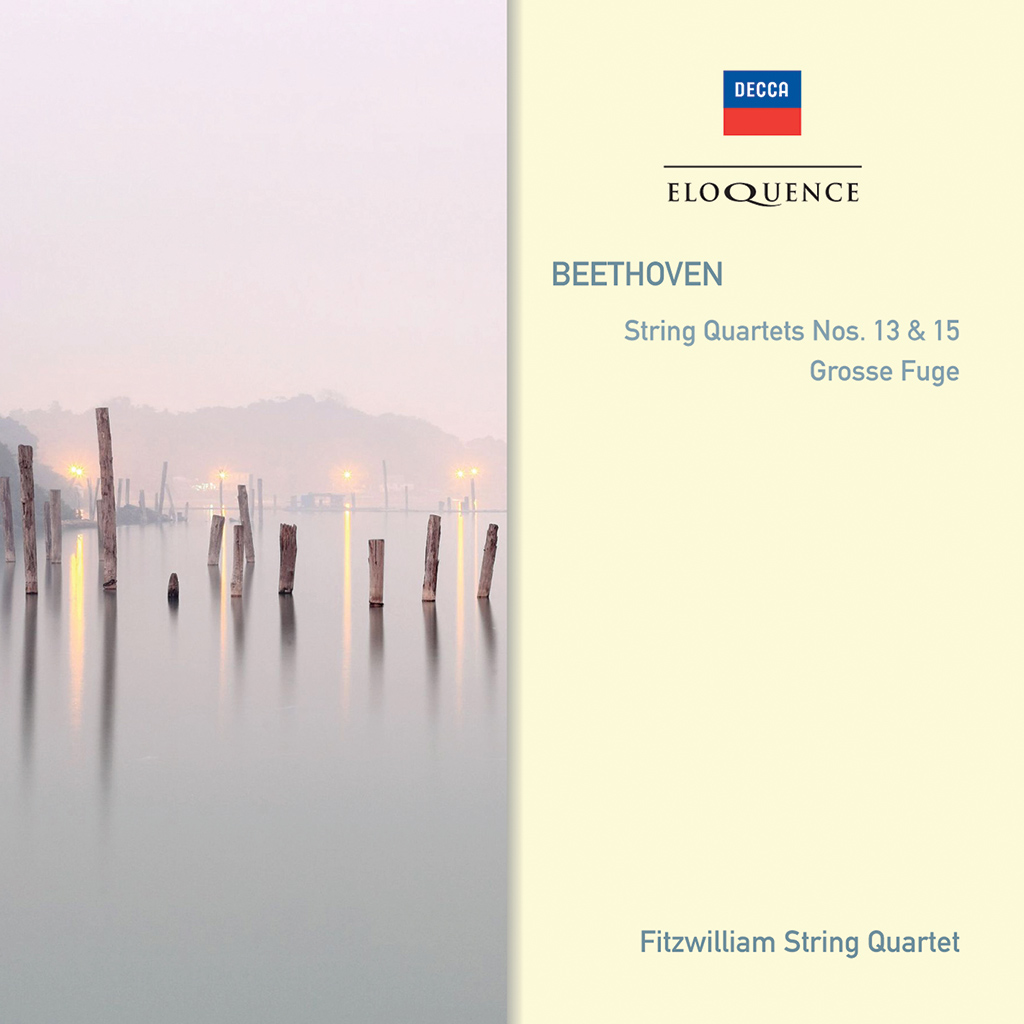
All that was issued of a projected Fitzwilliam Quartet cycle on Decca was two late quartets – Opp. 130 and 132 – as well as the Grosse Fuge. Issued over two full-price discs and unavailable for more than two decades, they are now coupled as a 2CD Eloquence reissue. Some of Beethoven’s most visionary achievements, the recordings were highly regarded upon their first (and only appearance) on CD. The Grosse Fuge is placed before the finale of the B flat major Quartet, ‘clearly intended to be a spectacular apotheosis’, as Alan George argues in his notes. Listeners can program the CD with either the Grosse Fuge as the finale or the sixth movement conventionally used as its finale.
The lengthy annotations include an introductory note by the Fitzwilliam Quartet’s viola player Alan George, reminiscing about the recordings. The original CD notes are updated and revised and an additional note on the Grosse Fuge is provided by the Quartet’s current leader, Lucy Russell. As well there is a biography of the Fitzwilliam Quartet and a note on their Decca recording team.
Collectors will be interested to learn that the Fitzwilliams’s recording of the Op. 130 and Grosse Fuge was the last recording ever to be made by Decca in one of its most prestigious recording venues, Kingsway Hall.
BEETHOVEN
String Quartet No. 13 in B flat major, Op. 130
Grosse Fuge, Op. 133
String Quartet No. 15 in A minor, Op. 132
Fitzwilliam String Quartet
Christopher Rowland, violin I
Jonathan Sparey, violin II
Alan George, viola
Ioan Davies, cello
Recording Producer: Peter Wadland
Balance Engineer: John Pellowe
Recording Location: Kingsway Hall, London, UK, December 1982 (Op. 132), December 1983 (Op. 130, Grosse Fuge)
‘This thoughtful performance has much to recommend it. In the dominating slow movement the players risk a slower tempo than any other ensemble known to me […] and this is symptomatic of the committed intensity with which they play this extraordinary music.’ (Op. 132) Gramophone
I much like the ardour and intelligence that the Fitzwilliam bring to all they do. … this ensemble can hold their own alongside most competition, for they are without question one of the finest ensembles this country has produced in recent years. Impressive too, is the Decca recording, which is as well balanced as any of the current rivals. I was struck right from the very opening by their unerringly right choice of tempos [in Op. 130]. … This is indeed a thoughtful reading, obviously the product of much care and feeling. … Their account of the Grosse Fuge, is powerful and muscular … There is a marvellously combative feeling here.’ (Op. 130, Grosse Fuge) Gramophone
